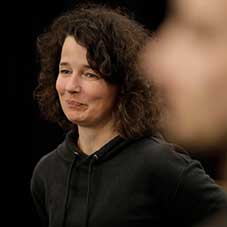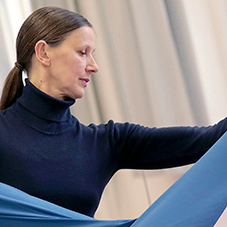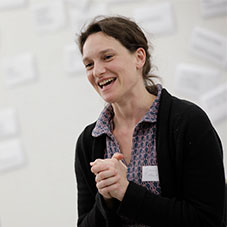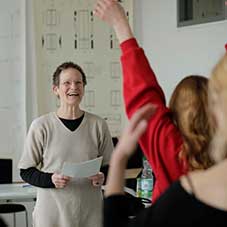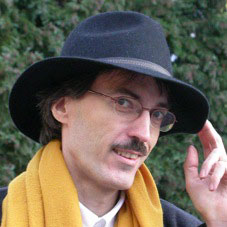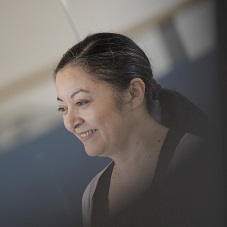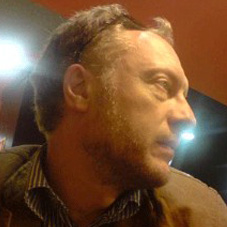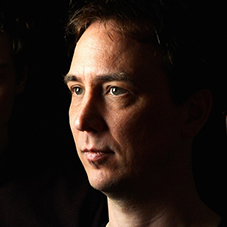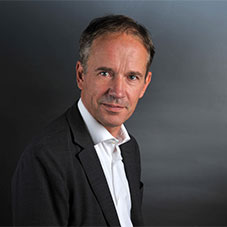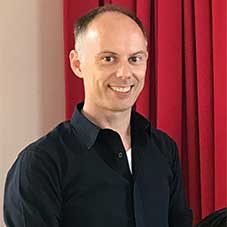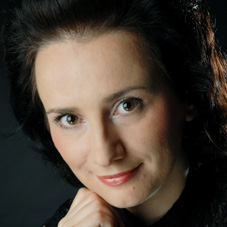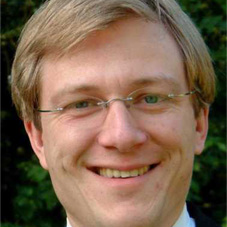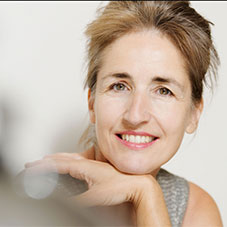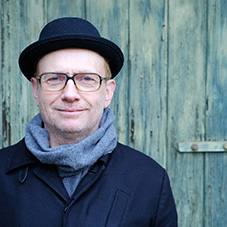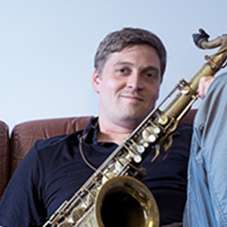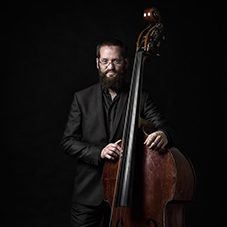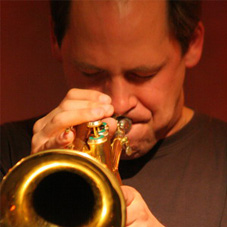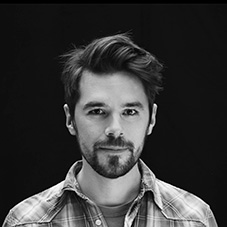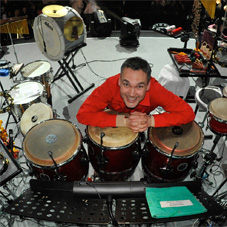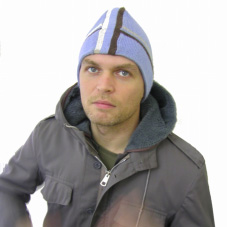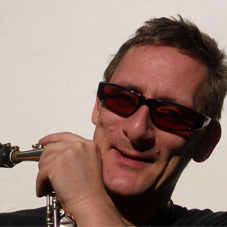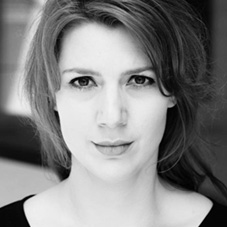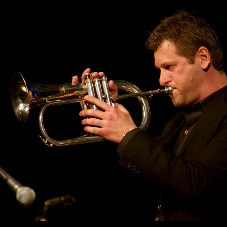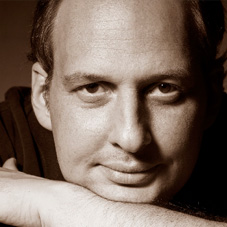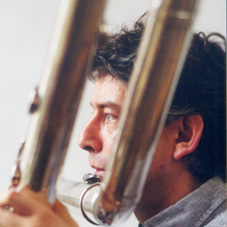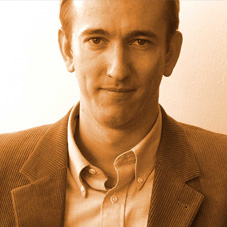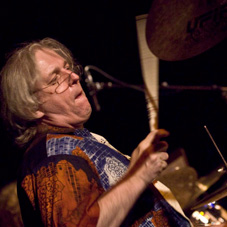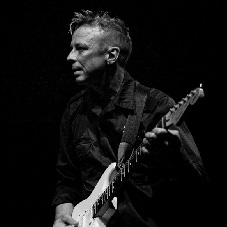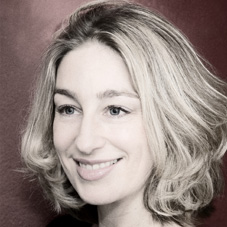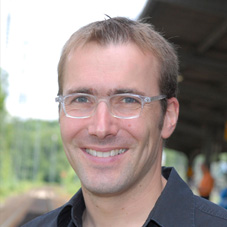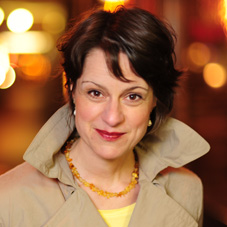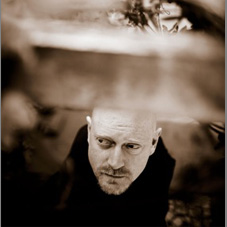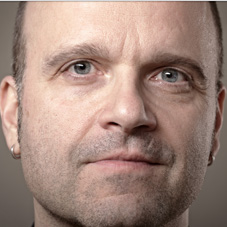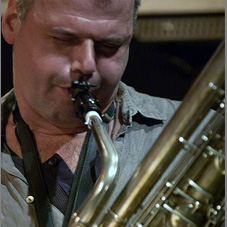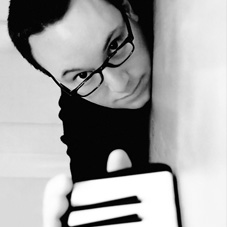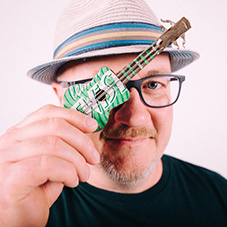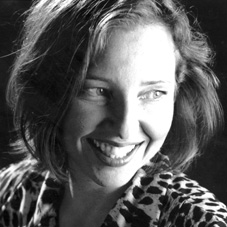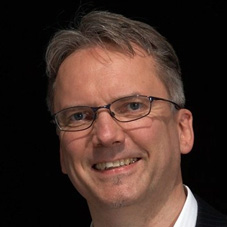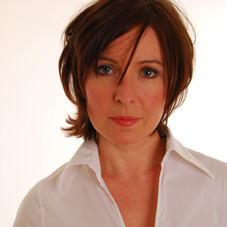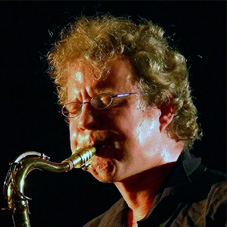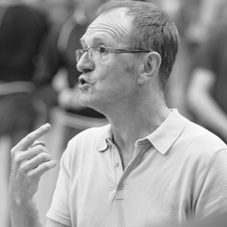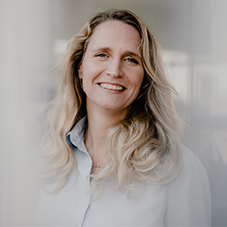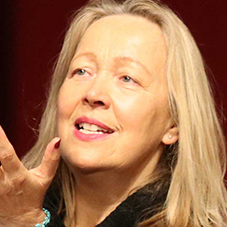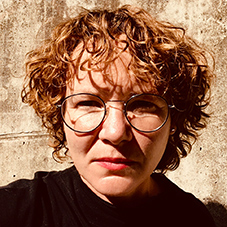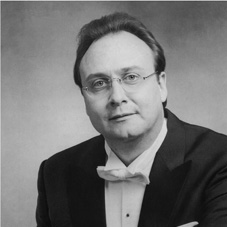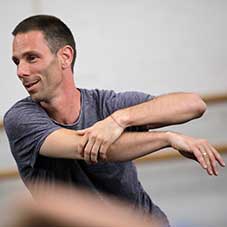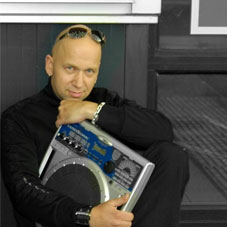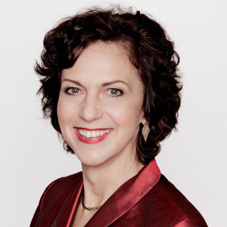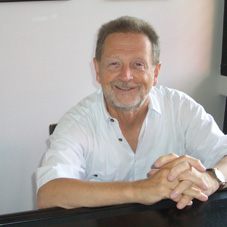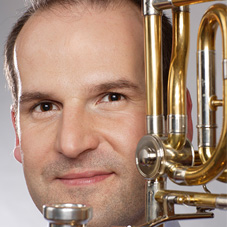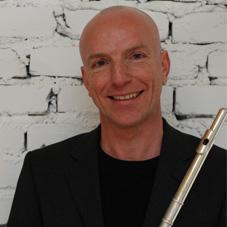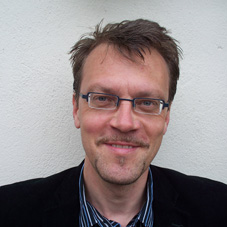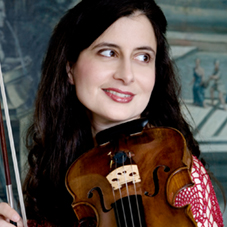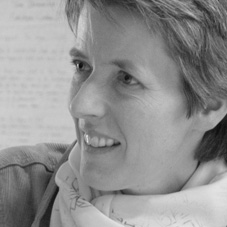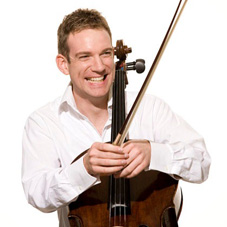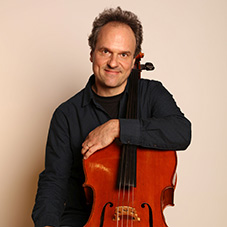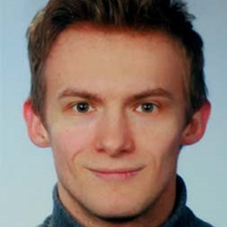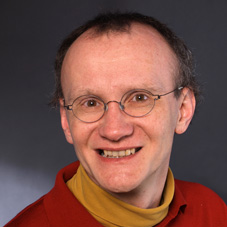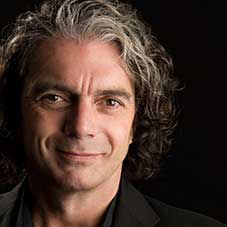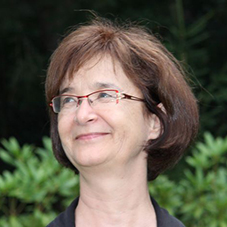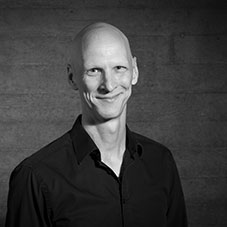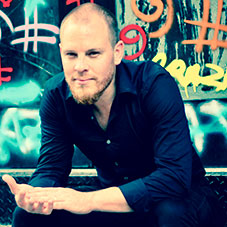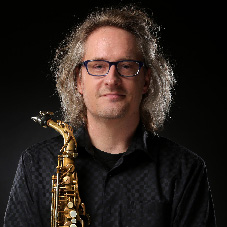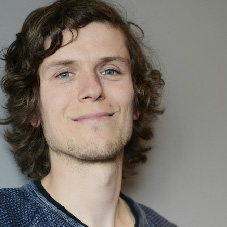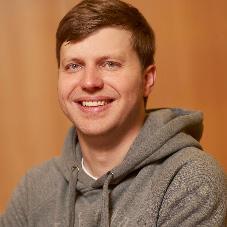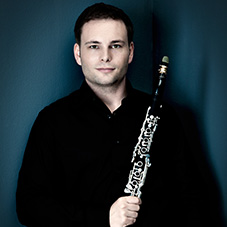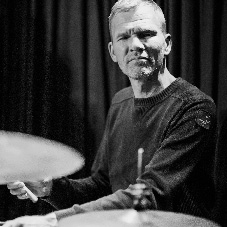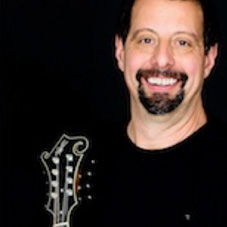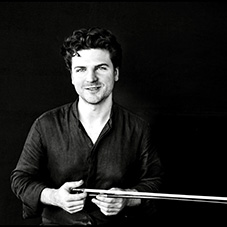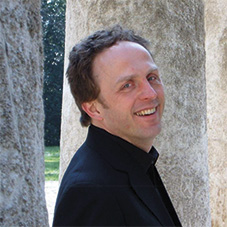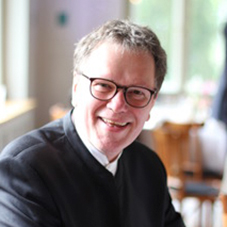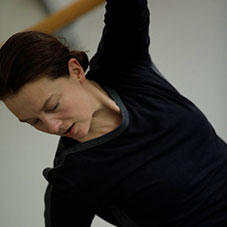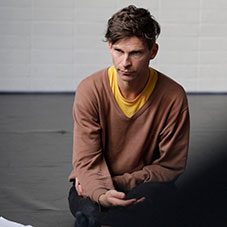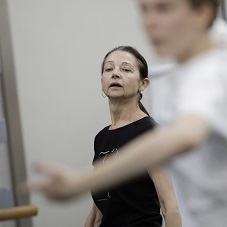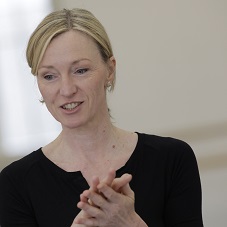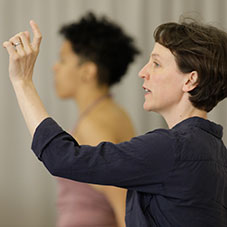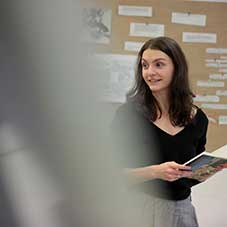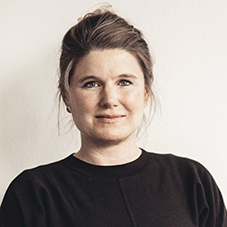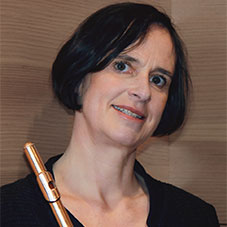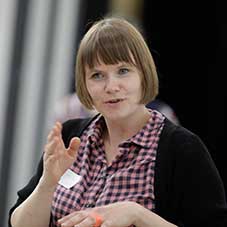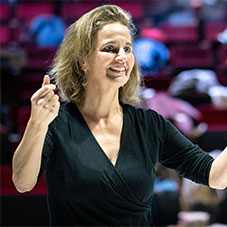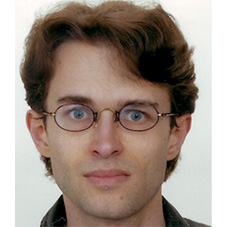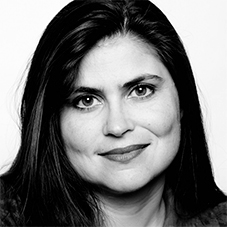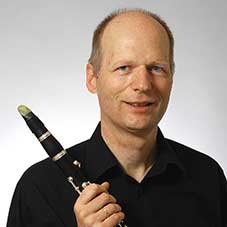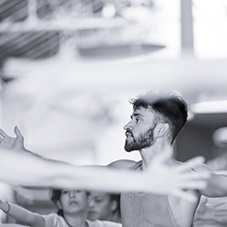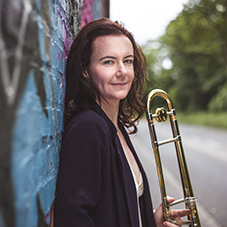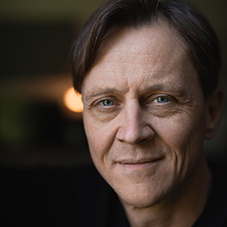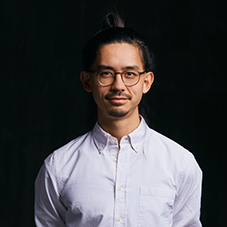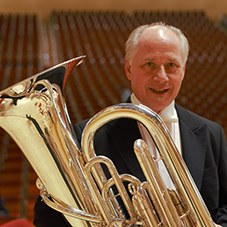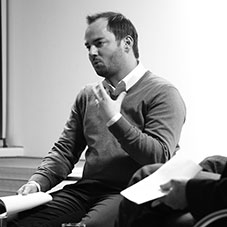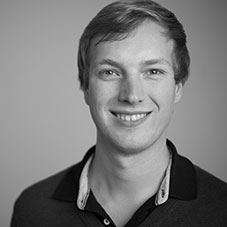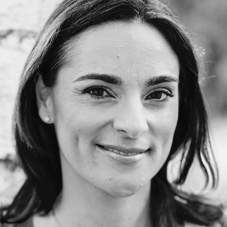###PRINT_PATH###
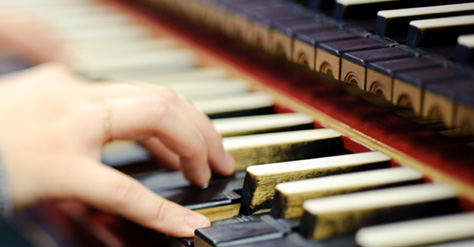
Master of Music - Historical Instruments and Baroque Vocal Performance
We offer excellent training programs for historical instruments and Baroque vocal music through our bachelor’s and master’s programs. In addition to individual instrument and soloist skills, we place great emphasis on playing together, which is why chamber music and ensemble courses aw well as professional stage experience are so strongly integrated into the Early Music program.
In addition, it is important to teach and promote extensive knowledge of harmony and music theory.
The varied structure of the program ensures that students receive the foundation they need to best meet the demands of their careers.
Each department has an international team of professors and instructors who have made themselves known throughout the world. These skilled and experienced educators ensure that students have the necessary skills to succeed in their future careers.
The University has very close ties to Cologne’s Baroque orchestras and ensembles, which gives many students from the Institute for Early Music the opportunity to participate in creating music and to network professionally.
The Hochschule für Musik Köln’s virtually exhaustive range of courses on early music ensures that the future professional musicians are ideally prepared for their careers. Regular events and projects guarantee that students have practical exposure to today’s concert scene. Their performances have increasingly become an integral part of the cultural landscape in North Rhine-Westphalia, which is highly valued by the public.
General Information
- Academic degree: Master of Music
- Duration of degree program: 4 semesters (2 years)
- Start of program: Winter semester
- Degree requirements: 120 ECTS credits
- Major: baroque oboe, baroque violin, baroque viola, baroque Violoncello, baroque vocal Pprformance, Recorder, harpsichord, fortepiano, nature bugle, nature trumpet, viola da gamba
- Graduate program: Concert Exam
The application takes place online via the muvac platform. You can find all the information about the procedure on our Application page.
Admission Requirements
- Successful completion of a four-year Bachelor’s Degree or other comparable qualification.
- For non-German-speaking applicants, proof of a language certificate at level A2 (based on the European Reference Framework for Languages) is also required.
- Successful completion of the entrance examination.
Entrance Examination
The entrance examination consists of a practical performance test in the candidate’s main subject. The test lasts approximately 20 minutes.
Detailed information can be found in the Entrance Examination Regulations, particularly in section 5: Content Requirements and Examination Format.
For practical performance courses, we recommend that candidates contact their chosen subject tutor in good time. They will be happy to advise candidates individually.
Downloads
The master’s programs for historical instruments, Baroque string and wind instruments, historical keyboard instruments, and Baroque vocal music are each four semesters long. With 1.5 hours of individual instruction per week, the main artistic subject is an important focus of the program. For us it is just as important that the students have extensive practice playing Baroque ensemble music during the chamber music courses. Depending on their main subject of study, students also focus on a Baroque melody instrument or the harpsichord as their secondary subject of study. The program, with a specialization in historical performance, includes other modules that examine specific styles from the 16th to 18th centuries. Fundamental theory and practice for the subjects of general bass, Baroque harmonics, the study of music scores, and musicology are taught in smaller groups and round off the range of courses offered.
Downloads
Prof. David Bergmüller instructs the master’s program for lute. David Bergmüller´s longstanding experience as a lutenist as well as his successful career as an ensemble director and opera conductor gives students extensive first-hand insight and information which can be very helpful when they begin their careers.
The master’s program is designed for students who already have a degree in guitar from an institute of higher education and who wish to receive a supplementary degree in lute. The program focuses primarily on playing techniques that differ from those of the guitar and expands the Renaissance and Baroque period repertoire that students are already familiar with from their guitar experience.
The Baroque violoncello major is a supplementary program that students study in addition to a bachelor’s or master’s degree in the (modern) violoncello major. The interpretation approaches examined in class for the repertoire from 1680 to 1830 are based on fundamental Baroque treatises and also teach the detailed development of cello playing over the course of history.
In addition to focusing on solo and chamber ensemble music specific to the Baroque violoncello, the program also teaches how to play basso continuo parts. In order to further develop as an artist, it is also worthwhile to learn at least the fundamentals of playing the Viola da Gamba.
Concerts today increasingly employ historical instruments. The recorder is one of these historical instruments, and students have the opportunity to take part in this ongoing trend. Concerts today increasingly employ historical instruments. The recorder is one of these historical instruments, and students have the opportunity to take part in this ongoing trend. It is to be understood that students will handle the instrument with professional care at all times. Prof. Leornard Schelb teaches this master’s program primarily aimed at graduates from the flute or recorder programs who wish to expand their musical background and professional skill sets.
The focus is on flute music from the early Baroque period to the Romantic era, with a special emphasis on the appropriate instruments (one-key to multi-key traversos). Upon special request, students may also work with key-less Renaissance traversos.
The following topics are covered in the program: historical sound aesthetics, varied articulation forms, styles, rhetoric and ornamentation, as well as preparation for playing historical instruments in orchestras. Additional programs focusing on sources and varied chamber music activities ensure that students receive a comprehensive and thorough education.
Prof. Richard Gwilt teaches the Baroque violin and viola major as part of the “Historical Instruments” two-year master’s program. Students receive 1.5 hours of individual instruction per week in their major, plus chamber music instruction and the opportunity to participate in concerts with larger ensembles.
Great emphasis is placed on fundamental aspects of Baroque violin technique such as violin and bow position and the principles of shaping sound. The Baroque doctrine of the affection and temperament are just as much a component of the program’s approach as the fundamentals of Baroque style. Important national styles, embellishments, and musical rhetoric are analyzed using the main Baroque repertoires from circa 1600 to 1770. By examining treatises and sources from the 17th and 18th centuries, students gain an overview of the Baroque period and historical performance styles. Prof. Richard Gwilt taps into his extensive wealth of knowledge gained from his experiences on the international concert scene and completes the examination of the Baroque period with helpful and practical suggestions.
Prof. Gwilt teaches the mandatory interdisciplinary course “Early Music Performance” (Auffürungspraxis Alte Musik) during the second semester to students from all majors with a modern string instrument studying in the violin bachelor’s program. The format of the course is usually a one-week orchestra project followed by a concert. The students learn how to play the various styles of Baroque music on their modern instruments. Starting in the 5th semester of the bachelor’s or master’s programs, students who wish to continue studying this subject have the opportunity receive individual instruction for Baroque violin as a part of the “Historical Performances” (Historische Aufführungspraxis) module.
It is impossible to imagine “early music” without the Baroque trumpet, which actually reflects the splendor of an entire era. Prof. Friedemann Immer, one of the world’s foremost experts on the Baroque trumpet, has taught the instrument at the Hochschule für Musik und Tanz Köln for more than 20 years. During this time, many internationally renowned and popular Baroque trumpet musicians have graduated from the Institute for Early Music. In addition to providing individual instruction, the program focuses on the trumpet ensemble and chamber music with other wind and string instruments as well as vocalists. In addition to the Baroque trumpet with three transposition holes, the program also works with playing “hole-less” Baroque trumpets and other brass wind instruments such as the slide trumpet and the cornett. A single, keyed trumpet is also available for those interested in studying the original interpretations of J. Haydn’s and J.N. Hummel’s concertos.
Nowadays, there is an increasing trend in symphony orchestras to play “old” brass wind instruments such as the natural horn, the Baroque trumpet, and the historical trombone. The Cologne campus closely works with Prof. Urban Agnas’ course for “modern trumpet” and we offer students from his class an introductory course in playing the Baroque trumpet with the possibility to continue studying the Baroque trumpet in addition to the modern trumpet.
On the Master’s Degree Programme in Historical Instruments and Baroque Vocal Performance, the Baroque Vocal Performance option is aimed at those students who wish to focus their repertoire on and deepen their knowledge of music from the 16th to the 19th century. Prerequisites for the course include a Bachelor’s Degree in Vocal Performance (opera/operetta, concert/Lied) and prior knowledge of the styles and practices associated with Baroque (early key and tuning systems), Rococo, Early Classical and Classical music.
The Hochschule für Musik und Tanz Köln provides prospective singers with a wide range of opportunities to prepare for their future careers: in addition to theoretical courses, the programme offers a wide range of collaborative and interdisciplinary projects and performance opportunities. The Institute for Early Music works together with the Baroque Vocal Performance programme, so that in addition to the 1.5 hours of main subject classes with Prof. Kai Wessel, the Master's students benefit from one year of accompaniment and one year of Lied-interpretation.
The programme also includes courses in basso continuo practice, ensemble playing, Italian, French (if requested), and lectures on ornamentation practices and musicology, with a particular focus on the 17th/18th centuries. Participation in productions organised by the departments of Vocal Performance, New Music and Church Music can also be achieved through auditions; participation in projects organised by the Institute for Early Music is mandatory. The programme’s with a focus on Baroque Vocal Performance centres around learning the various national styles (French, Italian and German), mastering the fundamentals of harmonic theory and ornamentation practices, meeting the expectations of professional ensembles, perfecting musical shape in recitative, declamation and musical rhetoric, as well as exploring a range of vocal models, and much more. The language of instruction for this programme is German.
Contact: Prof. Kai Wessel
For those who chose Baroque Oboe as their main subject, the programme centres around developing a distinctively Baroque sound and stylish, assured ornamentation, as well as work on the student’s technical performance skills. The course explores the repertoire of the 17th and 18th centuries as written for oboe, oboe d’amore and oboe da caccia. Students become familiar with the full range of solo and orchestral literature, preparing them for a wide range of career opportunities. Through interdisciplinary work of the staff at the Institute for Early Music, students have a wide range of opportunities to apply what they have learned in practice. The musical experience that Wolfgang Dey has gained through his many years of collaboration with ensembles such as Musicia Antiqua Köln and Concerto Köln are a central part of his teaching. As an oboist, recorder player and Baroque bassoonist, he draws on a wide range of interpretative approaches to musical performance.
Instructor: Wolfgang Dey
As part of the two-year Master’s Degree Programme in Historical Instruments and Baroque Vocal Performance, Prof. Gerald Hambitzer teaches students taking Fortepiano as their main subject. To prepare students for the demands of life as a professional concert musician, the programme consists of weekly, 1.5 hour, one-on-one tuition, alongside chamber music and basso continuo lessons. Emphasis is placed not only on developing a sophisticated touch – a vital skill in fortepiano playing – but also on promoting an independent voice when it comes to artistic expression. It is very important for us that we promote thoughtful and communicative musicianship and we strive to achieve this through the programme’s focus on chamber music. Alongside the technical and emotional aspects of music performance, the Master’s programme naturally also develops the students’ knowledge of music theory and provides them with a sound stylistic awareness of the core literature from approx. 1750-1850. (Alongside the technical and emotional aspects of music performance, the Master’s programme naturally also develops the students’ knowledge of music theory and provides them with a sound stylistic awareness of the core literature from approx. 1750-1850). From the very beginning of the course, we encourage public performances so that students start building experience and a sense of security when taking to the stage early.
Instructor: Prof. Gerald Hambitzer
A key focus of this programme is the stylistic and interpretative aspects of playing music for the Harpsichord. The course uses the core repertoire from the Baroque period, approx. 1550 to 1770, to develop an artistic means of expression. The specific technical demands of the instrument, as well as the principles behind sound production, play a particularly important role here and are explored through lessons on a range of historical keyboard instruments. Students will discover, among other things, the different characters associated with the various national styles of harpsichord playing, as well as the diverse range of approaches to Baroque ornamentation, and will explore for themselves questions surrounding the role of rhetorical character in the repertoire. Direct engagement with pertinent sources from the 17th and 18th centuries is designed to encourage and inspire students during their studies. Of course, the programme also takes into account the exciting and ever-expanding harpsichord repertoire of the 20th and 21st centuries. The programme also focuses in particular on stylish realisation of basso continuo parts. Here, too, study of historical sources and consolidated analysis of surviving examples of realised continuo parts provides invaluable guidance in defining an approach to continuo playing that is as historically accurate as it is musically convincing. Thanks to his many years as an international concert artist, Prof. Borgstede has a wealth of experience that greatly informs his study of the harpsichord and gives his students an invaluable insight into the Baroque era and the nature of historical performance practice.
Instructor: Prof. Michael Borgstede
Contact
- Prof. Gerald Hambitzer
Künstlerisches Hauptfach; Fortepiano Standort
Köln
